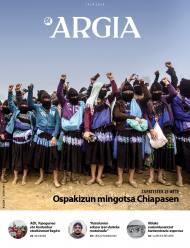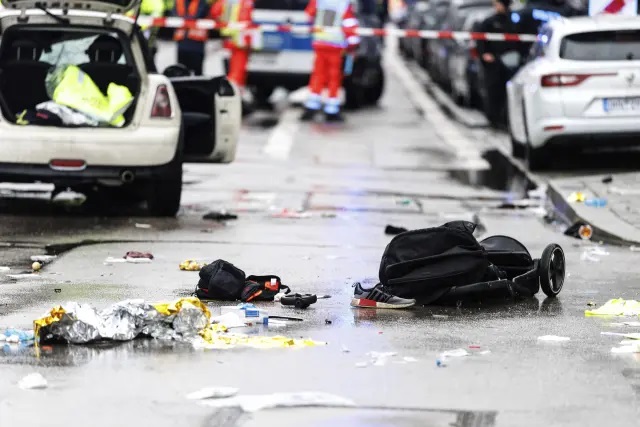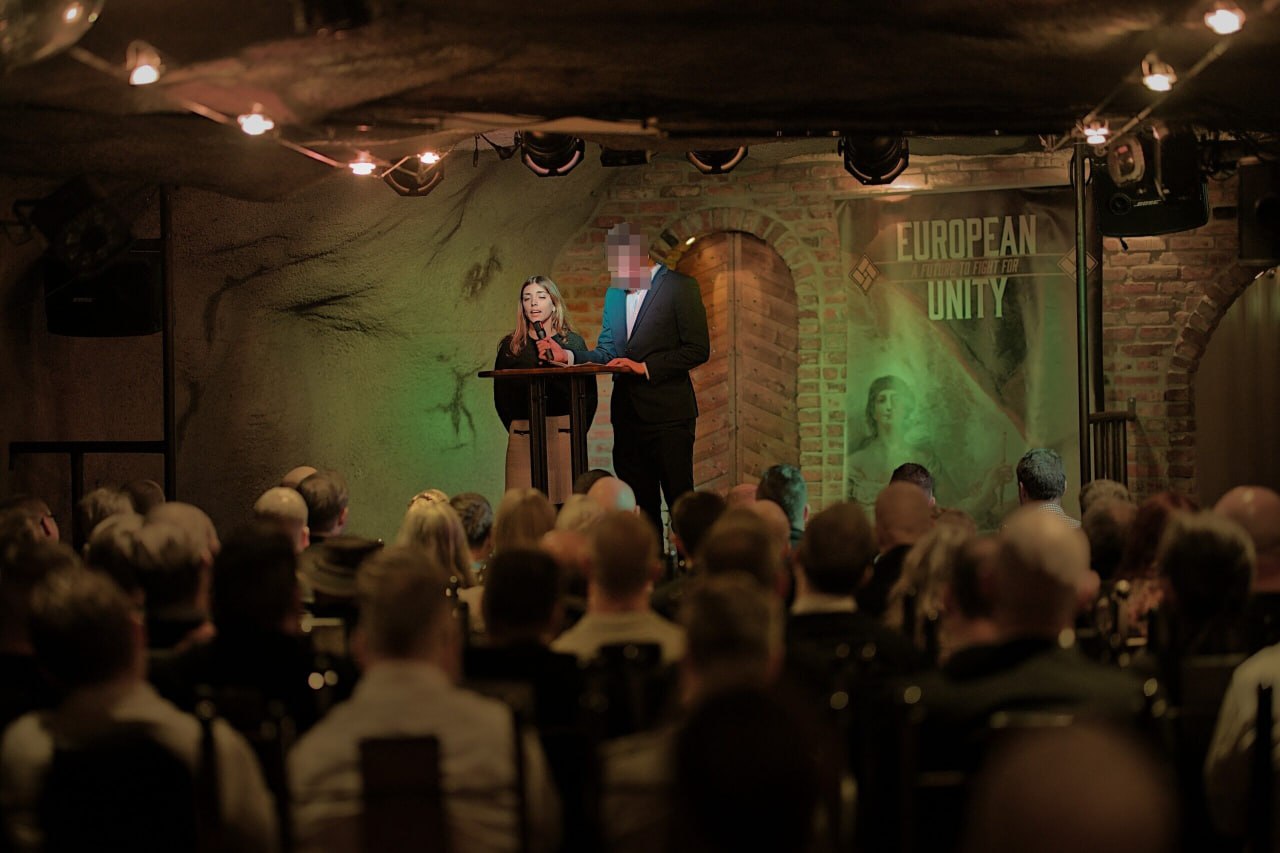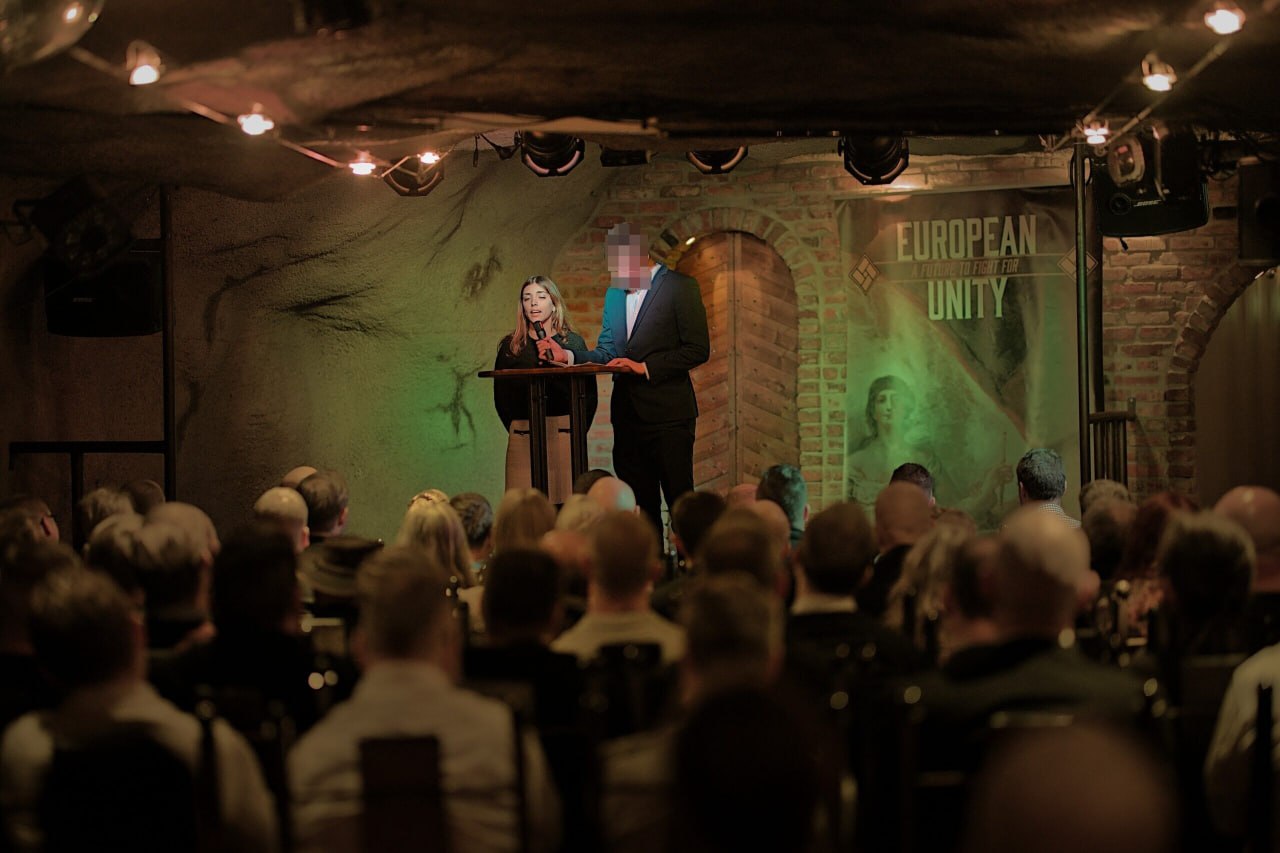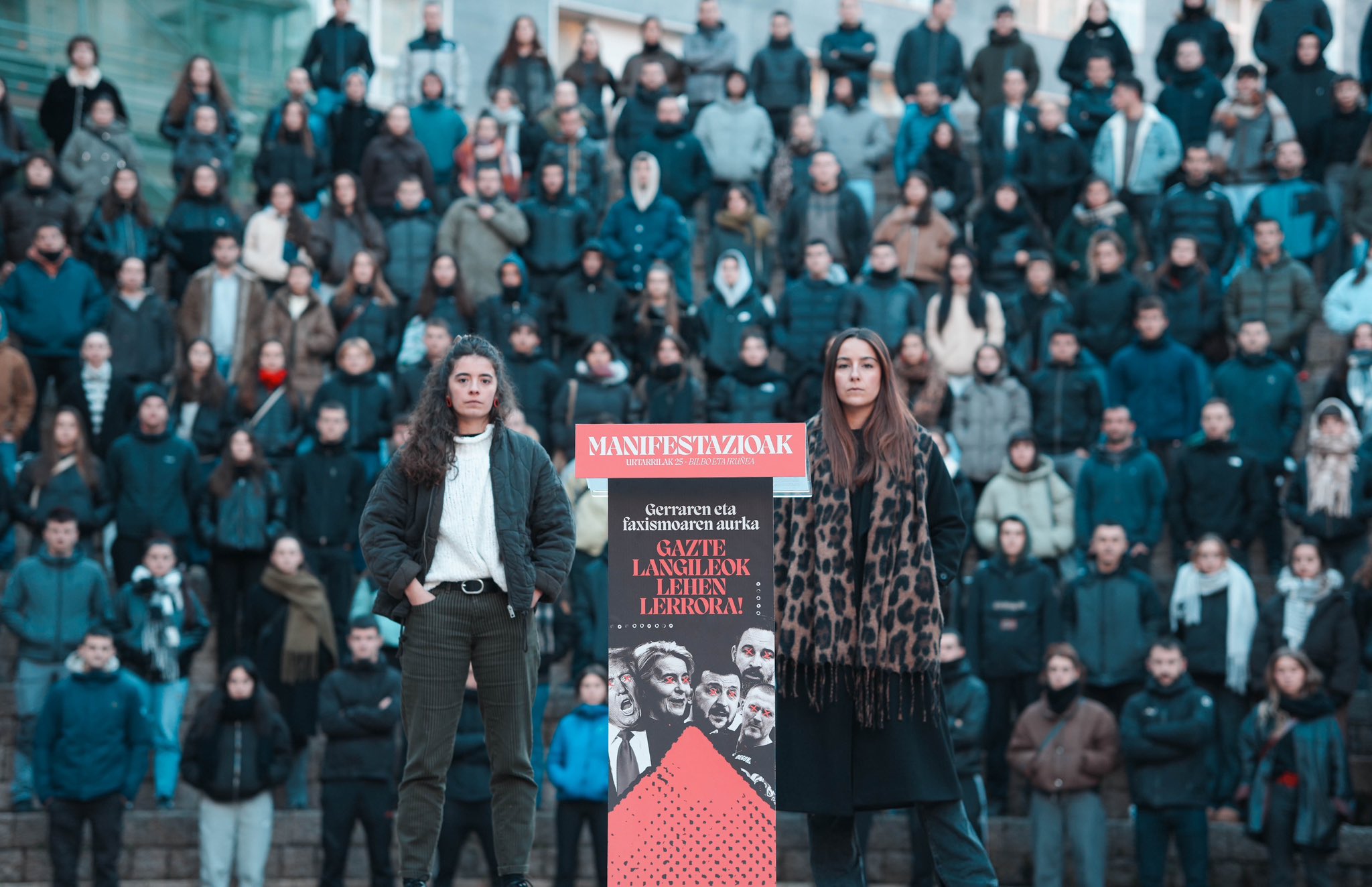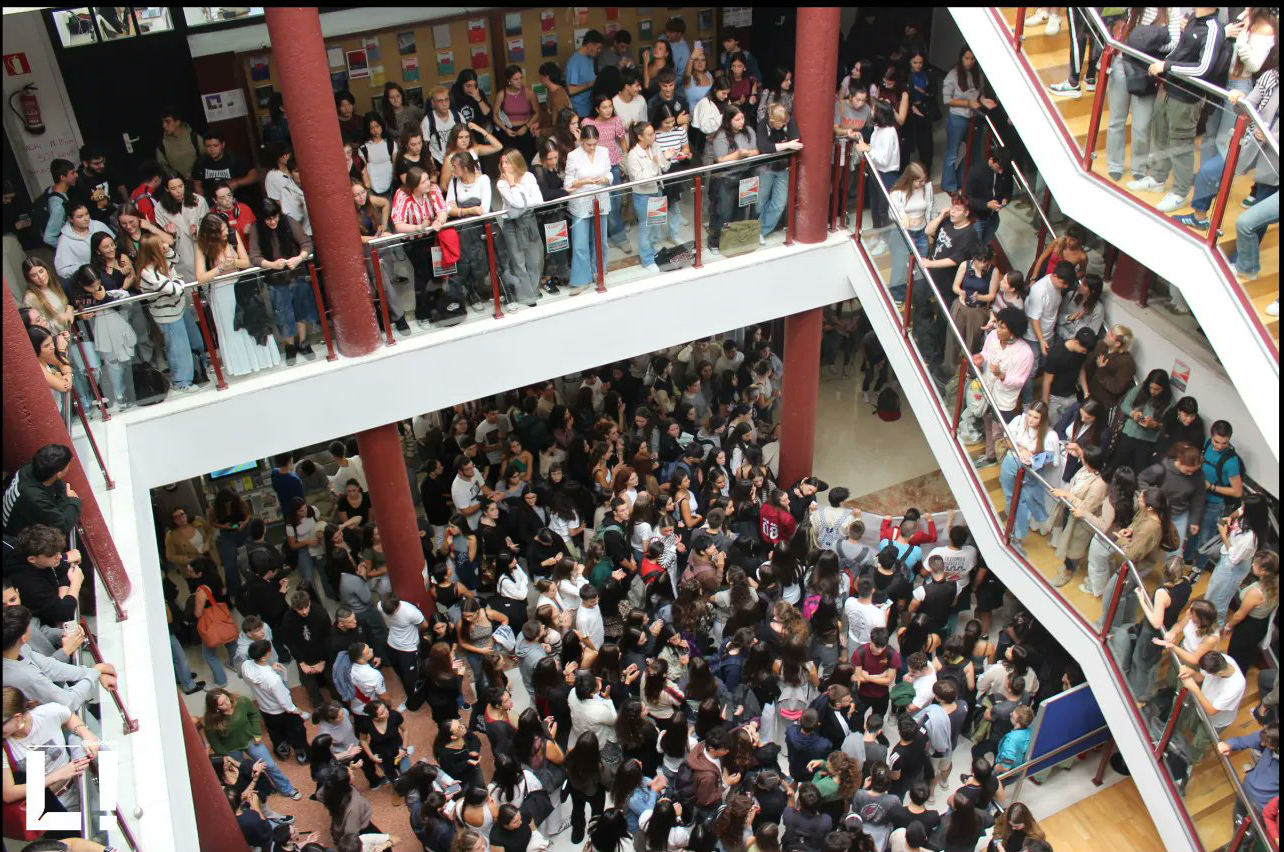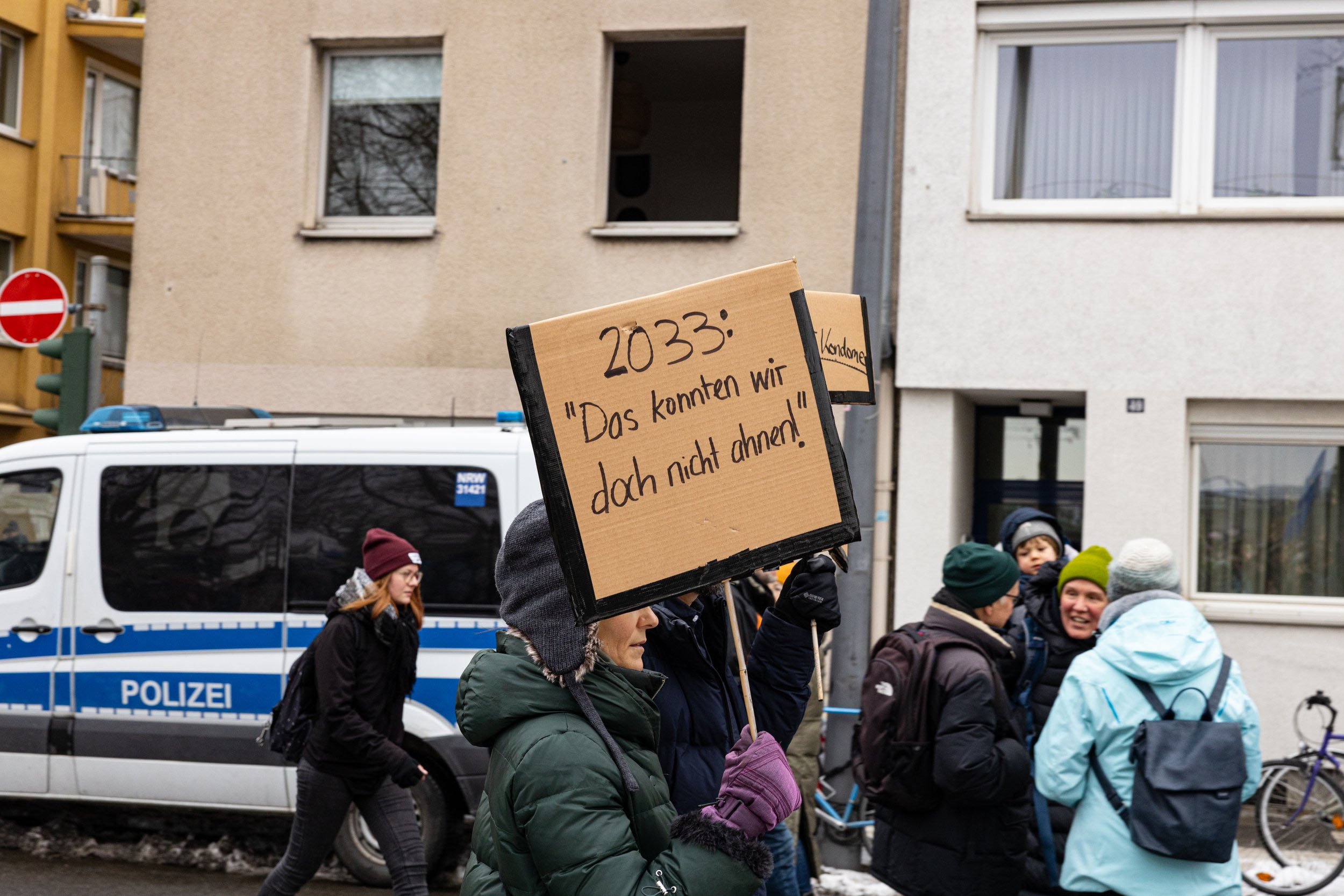Voxi no, look at who makes his speech
- On March 20, almost a hundred people met in the Sala San Agustín de Azpeitia to listen to the talk of Hedoi Etxarte (Iruñea, 1986): “Fascism today and here.” In the world, in Europe and in the Basque Country, the extreme right and its ever-increasing momentum, which is hidden behind the civilised touch, are also fashionable. Here you have the summary of the talk and all the information in our video.
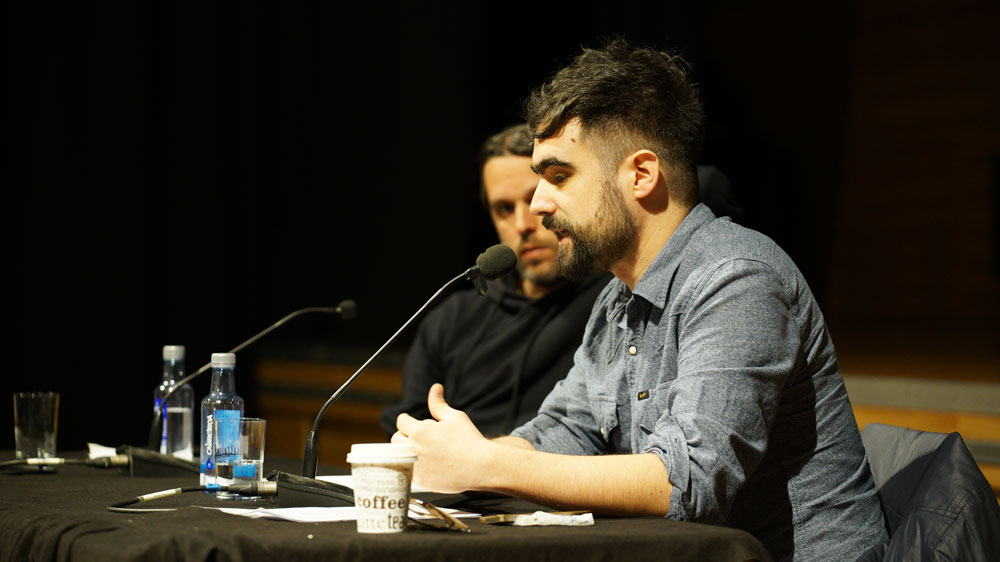
The Elkar-ekin and ARGIA group, known for dealing with the issue of betting in the Urola Valley, have organised a talk on the occasion of the centenary of the latter. Etxarte wanted to make it clear that fascism is completely tied to capitalism and mentioned the British writer George Orwell, who participated in the internationalist brigades during the War of 36: “After what I have seen in Spain, I have drawn the conclusion that it is pointless to pretend to be anti-fascist by conserving capitalism. Fascism, in short, is a development of capitalism and more liberal democracy, as we say, is ready to become fascism in the first difficulty.”
After Bertolt Brecht and his Truth brings five difficulties in writing. “This text should be a catechism for anyone who wants to put the world in the liberating direction through journalism or art,” says non-profit. Here's the famous passage: “What is the point of condemning fascism if nothing is said about the capitalism that produces it?”
Brecht wanted to make it clear that fascism was not like a “natural plague” that fell by chance on some countries, or a “third force” born between capitalism and socialism; no, according to him, fascism is “the hysterical phase of capitalism”. “To be against fascism without being against capitalism is not to be against the barbarism that is born of barbarism: it is to want a part of the calf and to oppose its sacrifice”.
Etxarte pointed out that fascism is often underestimated and recalled what German politics Clara Zetkin said in 1923 at the Communist International of Moscow: “So far they have been very vague ideas on this issue and not only among broad masses of workers, among the vanguard of the revolutionary proletarians and also among the communists.” That's why Zetkin was clear. “All proletarians must unite in the fight against fascism.” Attention to
fascism!
“We tend to think – Etxart- that fascism is a phenomenon of other times or other latitudes. But no, fascism, hysterical capitalism, is spreading all over the world with different shapes and names, as happened since the early 20s of the 20th century.”
He also referred to a number of events that took place last January, in which he highlighted his authoritarian influence. In Amurrio, a former police officer recalled the attack on the dwelling of a family on the Abertzale left and was very critical of the fact that the Jeltzale Andoni Ortuzar played down the importance of the event: “The banalization of para-police violence is one of the characteristics of the extreme right.”
With severe criticism, he referred to the repression exercised by the Foral Police in Pamplona against the young people of the Gaztetxe Marvels: "In three afternoons, more than 70 people were injured in various ways. The quadripartite government said that there was no social response, and if Barcina had done so, some 20,000 people would have gone out into the street. In other words, fascism does not come to a blow, it does not have to take power, power is tailor-made, it often comes so calmly, not always using military power. The sensitivity of many people is curious, they worry more about the appearance of a painted door [in the door of the PNV headquarters they appeared painted those days] than about the presence of dozens of injured people.”
He has also referred to the fight that a black woman in Vitoria-Gasteiz has had with the driver of a public bus because of her daughter's scooter: “In addition to the racist attitude of the driver, a man threatened the woman fascists and there was no reaction on the bus.” According to Etxarte, as important as these facts was that the following day the mayor of Vitoria-Gasteiz, Gorka Uraran, saw no problem in the driver’s attitude: “The normality of oppression is one of the characteristics of the extreme right.”
How does fascism reach us?
Etxarte launched the question and returned to history, looking at the Weimar Republic of Germany (1918-1933). He recalls that he was established in democracy and in a peaceful manner, but denies it and clarifies that that republic was built on the death of thousands of extortionists: “The Social Democrat leaders who killed Rosa Luxembourg and Karl Liebknecht decided to set their power at all costs and, as they did not have enough army to do so, created militias very similar to those that would later be formed in Italy, from which the Nazi movement emerged.”
“Today – Etxart continues – to see where authoritarianism comes from, the media want us to look at the Vox party, but this has not done the Mordaza Law or the Parties Law, it is not the responsibility that Franco is where he has been 40 years, it is not Vox who has set the ceiling for spending our municipalities… The extreme right that is now spreading in Europe symbolically. One of its models is, for example, the Dutch extreme right, which makes no noise in the media, which has social tints and which sees immigrants as the Jews of today. And the same thing happens in Germany with AfD, who are not neo-Nazis, they have a very common appearance and are not dedicated to martial parades in the rallies… Therefore, in Euskal Herria, when we look to the far right, we do not have to look at Vox, but at those people who make speeches from the far right.”
Etxarte ended with three ideas, reading the quote made by Gorge Orwel himself with his famous book 1984: “I believe that totalitarian ideas are rooted in the spirit of all intellectuals and I tried to bring them to their logical consequences in 1984. The book’s intrigue is in England, to insist that English-speaking countries are not better in nature and that totalitarianism, if it does not fight it, can win everywhere.”
In Etxarte’s words, we have to face fascism, but “today, instead of confronting ourselves, we are opening doors.” Syria, Libya, Catalonia, Venezuela, India and Yemen became an example of this, and he denounced that in these cases we are doing very little. “We believe that our militancy is enough, but not. If you are not given an atypical response to fascism, you win.” Etxarte has underlined the need to strengthen social movements and has looked with hope at the “unionism and feminism” which, in his view, are the strongest among them today. He also points to the importance of the intellectual response: “We have to listen very carefully to how fascism speaks and to whom, who listens and why.”
Finally, he considers that among the answers it is essential to “construct alternatives” that necessarily have to be “collective and shared”. In conclusion, he has recommended three books on the following alternatives: With the help of the people living the ZAD of Iñaki Etxeleku (Gatuzain 2018), the Berdea of Onintza Irureta is the new more (Argia, 2019) and Rote Zora, on a feminist group that practiced direct action, and that can be found free on the net.
.jpg)
The eco-social crisis generated by capitalism is causing global unrest across the planet. The "summits" of material and energy resources, establishing limits for growth and accumulation, entail imbalances between nature and society. The crazy wheels of extractivism, climate change... [+]
European elections will be held on 9 June, votes that appear to be of less interest to the public, although we have much at stake. The picture that is presented, moreover, is not at all optimistic, as considerable progress is expected from the far-right. We are called upon to... [+]







